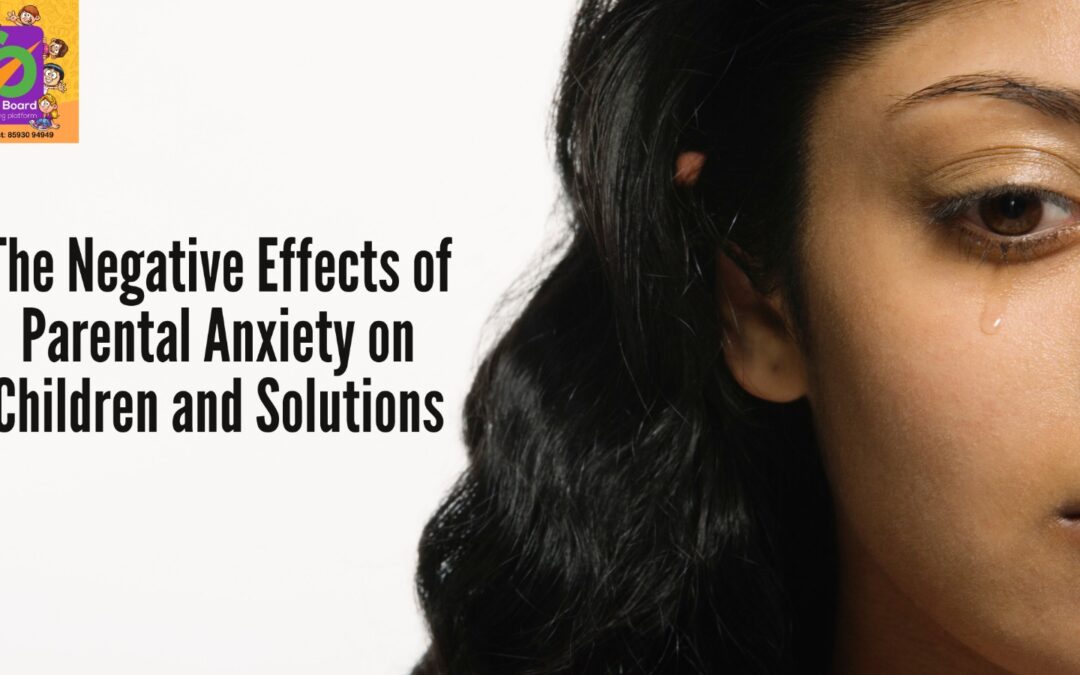Parental anxiety is an increasingly recognized issue that can significantly affect children’s well-being. When parents struggle with anxiety, it doesn’t just impact their own lives; it often extends to their children, shaping their emotional, psychological, and even physical health. Understanding these impacts and finding effective solutions is crucial for fostering healthier family dynamics and ensuring children develop in a supportive environment.
The Negative Effects of Parental Anxiety on Children
Emotional and Psychological Impact
- Increased Anxiety: Children of anxious parents are at a higher risk of developing anxiety disorders themselves. This can be due to both genetic predispositions and learned behaviours. When children see their parents reacting to situations with excessive worry or fear, they may internalize these responses as normal.
- Emotional Insecurity: Overly protective or controlling behaviours stemming from a parent’s anxiety can lead to children feeling insecure. They may doubt their ability to handle challenges independently, which can hinder their confidence and autonomy.
- Behavioural Issues: Anxious parents might inadvertently encourage behavioural problems in their children. This can manifest as either acting out or becoming overly reserved, struggling with social interactions and developing healthy relationships.
- Poor Coping Skills: Children learn by observing. If they witness their parents handling stress ineffectively, they may not develop the necessary skills to manage their own anxiety and stress.
Social Consequences
- Social Withdrawal: Children may become socially withdrawn, avoiding interactions they perceive as stressful. This can stem from a fear of new situations or a lack of social confidence, often mirrored from their parents’ behaviours.
- Difficulty Forming Relationships: Fearful and anxious behaviours modelled by parents can make it harder for children to form and maintain healthy relationships, as they might approach social situations with caution or apprehension.
Academic and Cognitive Effects
- Academic Performance: Anxiety can impair concentration and memory, leading to challenges in academic performance. Children may also experience school avoidance due to anxiety, further impacting their educational progress.
- Perfectionism: In an effort to gain approval and avoid criticism, children of anxious parents might develop perfectionistic tendencies, which can lead to chronic stress and burnout.
Physical Health
- Somatic Symptoms: Anxiety often manifests physically in children, resulting in symptoms such as headaches, stomach aches, or other stress-related ailments.
- Sleep Disturbances: Anxiety can cause significant sleep issues, which in turn affect overall health and cognitive functioning, creating a cycle of stress and fatigue.
Solutions: Addressing Parental Anxiety to Help Children
Modelling Healthy Behaviours
- Seek Treatment: Parents should seek professional help to manage their own anxiety. Therapy, medication, and lifestyle changes can significantly reduce anxiety levels, providing a healthier environment for their children.
- Practice Coping Mechanisms: Implementing and demonstrating effective stress management techniques, such as mindfulness, meditation, and regular exercise, can teach children how to handle their own anxiety.
Promoting Open Communication
- Encourage Expression: Creating an open and supportive atmosphere where children feel comfortable expressing their feelings can help them process and manage anxiety more effectively.
- Validate Feelings: Acknowledge and validate children’s feelings without judgment. This helps them feel understood and supported, reducing anxiety.
Professional Support for Children
- Therapy and Counselling: Professional therapy can help children develop coping mechanisms and provide a safe space to explore their emotions. Family therapy can also address dynamics contributing to anxiety.
- School Support: Working with school counsellors and teachers can ensure children receive the necessary support in their academic environment.
Building a Supportive Environment
- Consistent Routines: Establishing and maintaining consistent routines can provide a sense of stability and security for children, which is particularly important for those with anxiety.
- Positive Reinforcement: Encouraging and praising children for their efforts and achievements helps build self-esteem and resilience against anxiety.
Conclusion
Parental anxiety can profoundly impact children, but with awareness and proactive steps, these effects can be mitigated. By seeking treatment, modeling healthy behaviors, fostering open communication, and providing professional support, parents can create a nurturing environment that promotes their children’s emotional and psychological well-being. Addressing parental anxiety is not just beneficial for the parents, but is crucial in ensuring children grow up resilient, confident, and capable of managing their own anxieties.
Photo by Kindel Media: https://www.pexels.com/photo/a-father-scolding-his-son-8550681/

